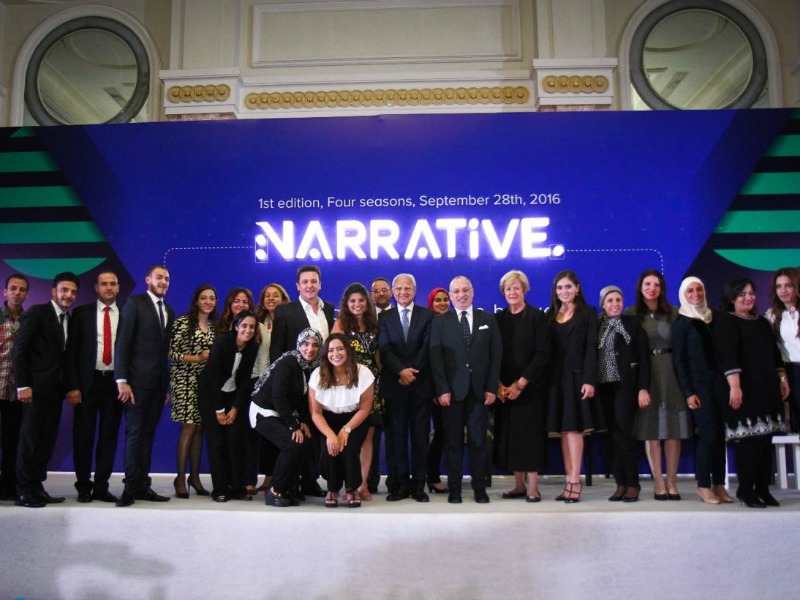Alex Malouf 04 Oct 2016 // 7:59AM GMT

Over six hundred communicators, both agency and client side, met together at the end of September as part of a concerted effort to bring together the Egyptian public relations sector. The industry, which has endured the challenges resulting from the country’s economic and political instability, is looking to both spread awareness of the value of communications among government institutions as well as the private sector as well as promote collaboration on issues such as ethics and standards.
"PR is still tactical," explained Lamia Kamel, managing director for Cairo-based CC Plus and the main organizer of the Narrative Summit. "Public relations either falls under marketing or corporate affairs in the private sector, and events and protocol when it comes to the public sector. Generally, we’re still confined to media relations. We’re not seen as a strategic discipline."
With its theme being the importance of the narrative, the event sought to promote dialogue on the role of public relations in Egypt. The day-long conference included various examples of nation-branding through cultural, educational and financial communications campaigns. Industry research firm YouGov also shared Egyptian consumer sentiment towards media and public relations (unsurprisingly, social media is becoming the dominant source of news for Egyptian consumers). The event didn’t shy away from tackling controversial issues.
"Egypt’s economy is no doubt facing turbulent times and the Narrative Summit touched on this, as well as on nation-branding and on the critical importance of public affairs and government relations for the private sector," said Mai Abaza, managing partner at Egyptian agency Publicist Inc. “Even more critical is the importance of the government’s communication strategy with the private sector and the general public. The steps being taken towards economic reform require clear messaging to be well received by all stakeholders. Today, good public relations is a necessity for Egypt’s public sector.”
In addition to a host of government and private sector speakers which included the Egyptian Minister of Planning, the Chairman of Orange Egypt and executives from AbbVie, Coca Cola, Google, PepsiCo, a number of agencies were out in full force. 4 PR, CC Plus, Editor PR, Hill+Knowlton Strategies, Organizational Consultants, Publicist Inc. and Rada Research & Public Relations came together to talk engagement, with each other as well as with clients and the government.
“Until the Narrative Summit, the industry players were not actively collaborating,” added Kamel. “There was a perception that the market was small and that competition was intense. This perception prevented agencies from finding areas of mutual interest. On the other hand, the vast gap between [how PR is practiced] in the public and private sectors allowed little opportunity for dialogue between the two sides. The private sector can play a role in the capacity building of PR in public institutions and supporting its development."
The Chartered Institute for Public Relations was also present; Jason MacKenzie, President-Elect of the Chartered Institute of Public Relations, spoke about the future of the industry, shared insights from the UK and promised to support the development of the PR sector in Egypt and the wider region.
“The Chartered Institute of Public Relations takes its role on the global stage seriously — and I was excited by the prospect of attending. It was a day of envisioning, drawing a high-calibre audience, eager to hear the diverse range of presentations from some of the most credible practitioners in the Middle East and North Africa. Throughout 2017, when I will serve as CIPR president, we will be looking at expanding our influence internationally. As part of that, we hope to continue to strengthen ties throughout the MENA region."
For Abaza, who has worked in the industry for almost a decade and a half, the event will help to finally bring practitioners together and push the profession forward. "The Narrative Summit is the first step in that direction. Until now, PR practitioners in Egypt had never really collaborated," said Abaza. "The market needs this now, it needs standards and education. Public relations in Egypt is growing very fast, but it’s open and unregulated. The PR practice is not governed by any agreed upon code or set of standards."
"We need to work on that, and on helping organisations in both the private and public sectors understand how public relations can impact their future. So differentiation will be key, including a code of ethics, strong standards and possibly even certification for PR professionals."


































.jpg)


















